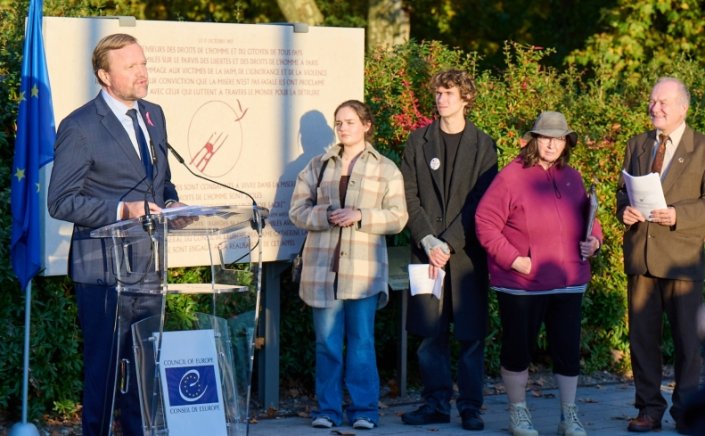Trio of experts point to indications of significant natgas deposits in Greek waters
A trio of energy sectors experts on Wednesday all pointed to initial indications of noteworthy quantities of natural gas deposits in Greek waters, speaking at the inaugural OT Forum – “A Changing World” – held at the old Athens Stock Exchange.

A trio of energy sectors experts on Wednesday all pointed to initial indications of noteworthy quantities of natural gas deposits in Greek waters, speaking at the inaugural OT Forum – “A Changing World” – held at the old Athens Stock Exchange.
On his part, Continental Europe Energy Council vice-president Yannis Grigoriou cited studies by the Hellenic Hydrocarbon Resources Management S.A. and the Greek Energy Forum (GEF) referring to the possibility of up 90 trillion cubic feet (or 2.5 trillion cubic meters) of off-shore natural gas deposits in the Aegean and Ionian Seas.
The key, as he said, to continue exploration by global energy giants is for the Greek state to maintain unwavering political volition in the field and to adopt a corresponding long-term energy exploitation strategy.
He spoke during Q&A format of the OT Forum, during the session entitled “Hydrocarbon Exploration and Naturas Gas Pipelines in the SE Mediterranean.”
On his part, Dr. Spyros Bellas, the chief of research at the Crete-based Institute of Geoenergy, part of the Foundation for Research & Technology, said a full exploitation of discovered deposits will take at least three and a half years.
He also said more partners in consortia engaged in hydrocarbon exploration will lead to progress, as well as extending current licenses for research and exploration in Greek seas.
On his part, Prof. Theodoros Tsakiris revisited the ambitious EastMed project, which would be designed and constructed to transport east Mediterranean natural gas – from off-shore Israeli and Cypriot deposits – first to Crete, then to the Greek mainland and on to the rest of Europe.
Recently, official Washington – via the US State Department – appeared to distance itself from the project, mostly citing a lack of economic feasibility. Concerns over technical specifications, cost-to-benefit ratios and even Turkey’s saber-rattling in the region to prevent its construction have also previously cast a shadow over the proposed project.
Nevertheless, Tsakiris, an assistant professor of geopolitics and economics of hydrocarbons at the University of Nicosia, cited three reasons that overturn concerns, namely, the current crisis emanating from the war in Ukraine and the surge in natgas demand; the prospect of the pipeline also transporting hydrogen, thus boosting its financial benefit, and thirdly, the geopolitical diversification that such a pipeline would generate. The latter essentially means that another natural gas supplier would be available to Europe, reducing dependence on Russia, for instance.
OT Forum















![The Biggest Travel Trends of 2026 [CNTraveler]](https://mykonosticker.com/uploads/images/2026/01/image_140x98_695ead4568994.jpg)




![The Biggest Travel Trends of 2026 [CNTraveler]](https://mykonosticker.com/uploads/images/2026/01/image_705x436_695ead4553384.jpg)




